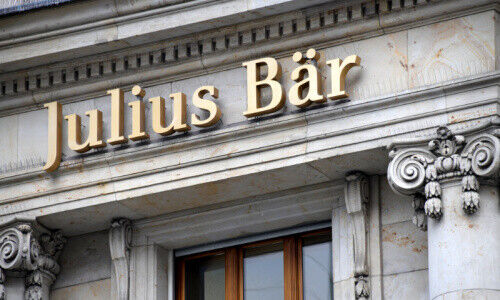Swiss private bank Julius Baer reported lower profits during the first half of the year but said that it managed a resilient performance during the period.
Julius Baer Group reported that net profit attributable to shareholders decreased by 26 percent, to 451 million francs ($469 million), driving earnings per share down 24 percent to 2.15 francs, according to IFRS measures, the bank said in a statement Monday.
«We look back at a historical six-month period of unprecedented geopolitical events that had a deep impact on asset valuations and client sentiment, said CEO Philipp Rickenbacher. He added that the firm remains «focused on achieving our targets for the strategic cycle ending in 2022, accelerating cost discipline across the Group, doubling down on efforts to create value for clients and opportunities to hire front-office talent. As such, we are already establishing the prerequisites to deliver on the longer-term growth commitments outlined at our strategy update earlier this year.»
Assets Under Management
In the first half of 2022, assets under management (AuM) declined by 54 billion Swiss francs, falling 11 percent to 428 billion. This decrease was driven by the significant corrections in global equity and bond markets, in one of the worst six-month periods for capital markets in decades, according to the bank. Average assets under management were 458.3 billion francs during the first six months of the year. By comparison, they were at 459.8 during the first half of 2021 and 482.6 at the end of last year, according to the bank.
At the end of June 2022, approximately 1.6 percent of Julius Baer’s AuM were related to Russian persons neither entitled to residency in the European Economic Area nor Switzerland, it said.
New Money
In breaking down the performance of net new money flows, Julius Baer said that during the first four months of the year, outflows were 2.7 billion francs, driven mainly by deleveraging by clients domiciled in Asia. During the May to June period, however, flows were positive, with 1.5 billion francs coming into the bank mainly from Western Europe and the Middle East as the pace of deleveraging decreased.
The bank highlighted clients domiciled in Western Europe, especially in Germany, Luxembourg, and the UK, continued to contribute meaningfully to inflows throughout the period, while net new money from Middle East domiciled clients turned positive after April. During the early part of the first half, several mainly Asian domiciled clients started reacting to the environment of increased uncertainty by de-risking their investment portfolios and reducing leverage. The impact on net new money from this deleveraging peaked in March 2022, after which it diminished significantly, according to the results.
«Based on the outlook at this time, net new money is currently expected to normalize further in the second half of the year,» the bank said.
The bank said that there was a «meaningful recovery» in net new money of 1.5 billion francs since the end of April, which limited total net outflows in the first half to 1.1 billion francs.
Share Buybacks
In early March, Julius Baer launched a new 12-month program to buy back up to 400 million francs of Julius Baer Group shares. By the end of June, a total of 2,522,072 shares had been repurchased at an aggregate cost of 122 million francs.


































